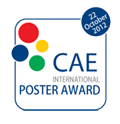We consider simultaneous multi-tool machining of cyclically-repeated batches from several types of workpieces on multi-position machine-tools. The positions are ordered consecutively and the tools are grouped in spindle heads. Both the spindle heads of working positions and the tools of the same spindle head are operated simultaneously.
The workpieces of each batch are ordered identically and are consequently machined on all positions in the order of their numeration. Machining at all positions is done simultaneously by all respective blocks of tools of multi-spindle heads of each position. The tool blocks for different pieces are different. The pieces are moved simultaneously to the next positions after each tact of machining. The piece from the terminal position is moved away from the machine-tool and the next piece is put to the first position.
We define machining modes for each piece as the set of the spindle’s speed for all tools and the feed per minute for all spindle heads. We assume that the obtained modes remain the same during the machining process. Each tool is replaced
independently based on its life time which depends on machining modes.
We also assume that the ranges of possible values of machining modes, posinomial dependences of the life time and characteristics of the cutting process on machining
modes, and the maximal permissible values of these characteristics for all tools and spindle heads are known.
The problem is to determine the machining modes to minimize the production cost for the required productivity under the above constraints. We present a geometric programming formulation in the following cases: a) all pieces of the same batch are different and the feed per minute of each spindle head depends on the machined piece, b) a batch may contain identical pieces, c) feeds per minute are the same for all pieces. We solve these problems using the decomposition techniques based on the method of Lagrange multipliers and the fragmentary parameterization concept of Levin and Tanaev (1998).
|




